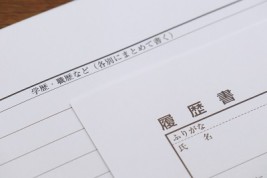In recent years, Japan has been suffering from a shortage of IT engineers, and not only large companies but also small and medium-sized companies have been hiring foreign engineers. Also, an increasing number of companies are focusing on international students in Japan and prospective university graduates from overseas when hiring new graduates.
In this way, fields where foreign engineers can play an active role, are expanding in Japan, but the “language barrier” is something that must be cleared when foreign engineers work in Japanese companies. If you want to work under favorable conditions and aim for a high income, you will need not only development skills and experience but also Japanese language skills.
In this article, we will explain the background for Japanese companies to seek foreign engineers and the Japanese Language Proficiency Test (JLPT), which is a way to measure foreigner’s Japanese ability.
Contents
An increasing number of Japanese companies want to hire foreign engineers!

In recent years, the recruitment of foreign engineers is progressing at a rapid pace in Japanese companies. In the past, it was a noticeable trend for large companies, but recently, small and medium-sized companies have also begun to acquire foreign engineers.
Why are foreign engineers getting more attention now than Japanese engineers? There are various factors, but I think it can be summarized into the following two points: Human resource shortage due to the declining birthrate and aging population and as a response to globalization.
Human resource shortage due to the declining birthrate and aging population
Japan’s declining birthrate and aging population are entering a very serious phase. In the future, there is a concern that IT engineers will become more scarce than ever because of the declining birthrate, the aging population, and declining of the working population. The Ministry of Economy, Trade and Industry announced a forecast that “it will be short for about 410,000 (optimistic) to 790,000 (pessimistic) IT human resources in 2030”. The lack of IT engineers in all industries cannot be made up only by Japanese human resources, so the hiring rate of foreign engineers is progressing.
Response to globalization
In recent years, Japanese companies have expanded into overseas markets, but recruiting activities that are particular to Japanese people cannot keep up with the trend of globalization and slow down corporate growth. Japanese companies that felt a sense of crisis were actively recruiting foreign personnel. As for IT engineers, can not only complement the workforce by recruiting outstanding foreigners but also lead to the development of the company by fusing multinational human resources.
The Japanese Language Proficiency Test (JLPT) should be preferably N2 or higher!
For foreign engineers who want to work in Japan, it can be said that the current situation is favorable, but the language problem is unavoidable when working in a foreign country. If a foreign engineer wants to work in Japan, not only skills as an IT engineer but also “Japanese language skills” are required. A common standard for measuring the Japanese language skills of foreigners is the Japanese Language Proficiency Test.

What is the “Japanese Language Proficiency Test” that measures Japanese language ability?
The Japanese Language Proficiency Test (JLPT) is a test for measuring Japanese language proficiency for people whose native language is not Japanese. Tests are held twice a year in July and December.
* There is a similar name test called “Japanese Proficiency Test”, but this test is for people whose first language is Japanese.
In the first year of the Japanese Language Proficiency Test (1984), there were approximately 7,000 people worldwide, but in 2019 it was held in 47 prefectures in Japan, 239 cities in 86 countries, and approximately 900,000 people. Is taking the exam.
There are 5 levels of the Japanese Language Proficiency Test.
The Japanese-Language Proficiency Test is an exam that mainly asks you to read and listen to Japanese. Levels are divided into five levels, N1 to N5, and the test questions are different for each level. N1 has the highest level of difficulty and N5 has the lowest level of difficulty, so you can take the test according to your Japanese language ability.
The level of the Japanese Language Proficiency Test is an important indicator for measuring the Japanese language ability of foreigners. N1 to N5 levels are used in various situations such as employment/change of employment, salary increase/promotion, study abroad, entrance examination, etc.
Japanese language skills required for foreign engineers are N1 and N2.
In the recruitment information for foreigners, you may see a statement such as “Required skill: Japanese Language Proficiency Test Level 2 (N2)” or “Preferred Skill: Japanese Language Proficiency Test Level 1 (N1)”.
The level of Japanese language skills required of foreign engineers varies from company to company, but generally level “N1” or “N2” is required. Recently, some companies are recruiting even at the N3 level because of the growing shortage of engineers, but the N1 and N2 levels are desirable for finding and changing jobs under favorable conditions.
N1 is very difficult, and it is said that the number of kanji required to pass is about 2,000 characters and the number of words is about 10,000. This level is for foreigners who use Japanese on a daily basis. The number of kanji required to pass N2 is about 1,000 characters, and the number of words is about 6,000, which is much more difficult than N3.
Below is the official website for the Japanese Language Proficiency Test in which it sets the standards for N1 and N2 certification.
>>Click here for the Japanese Language Proficiency Test guideline
Increasing your Japanese language skills will increase your value as an engineer!

There are cases where Japanese companies do not have English-speaking employees …
One reason why foreign engineers are required to speak Japanese is that few Japanese employees can speak English.
As long as the IT engineer can communicate in English, there will be no major problems in project management. However, there are few Japanese who can speak English, and there are cases where it is difficult to communicate in English depending on the company. From the recruiting companies who are not good at English, foreign engineers need to be able to speak Japanese; it is best if their Japanese ability is high.
In the future, it will also serve as a bridge for foreign engineers!
Foreign engineers who can speak Japanese can work while communicating with Japanese engineers. If you can work well, you can improve your project efficiency and minimize the risk of trouble.
Definitely, it makes it easier to work with a Japanese speaker engineer rather than with an engineer who can only speak his native language or English. Also, it is helpful when thinking about career advancement. In the future, it can also be used to work as a project manager or as a bridge SE for foreign engineers.
Show your speaking skills at the interview!
People who have acquired the N1 or N2 of the Japanese Language Proficiency Test, tend to be from China and Taiwan, because of the common use of Chinese characters in their language. On the other hand, it seems difficult to read and write kanji for people from non-Kanji culture countries, so the score on the Japanese Language Proficiency Test might be low.
However, since the Japanese Language Proficiency Test does not ask “speaking ability”, the level of the exam may not be proportional to the ability to speak. For example, even if the Japanese Language Proficiency Test is N3, there may be people who do not have a problem with communication. Such people may try to appeal to the recruiter at the interview.
If it is a Japanese company rather than a foreign company, hiring interviews will usually be conducted in Japanese, and if you can communicate well, it may open the way for you to be hired.
Conclusion
It seems that the current situation is that foreign engineers with a high level of Japanese seem to have a low set of development skills and experience. The opposite situation also happens when experienced foreign engineers with rich development skills and experience have a low Japanese level.
In any case, Japanese language skills are a major point in order to be active as an IT engineer in Japan. Increasing your Japanese language skills will increase your rarity as a human resource, which should lead to a higher annual income and career advancement. Above all, if you can improve your Japanese, your life in Japan, including your private life, will become more fulfilling.










